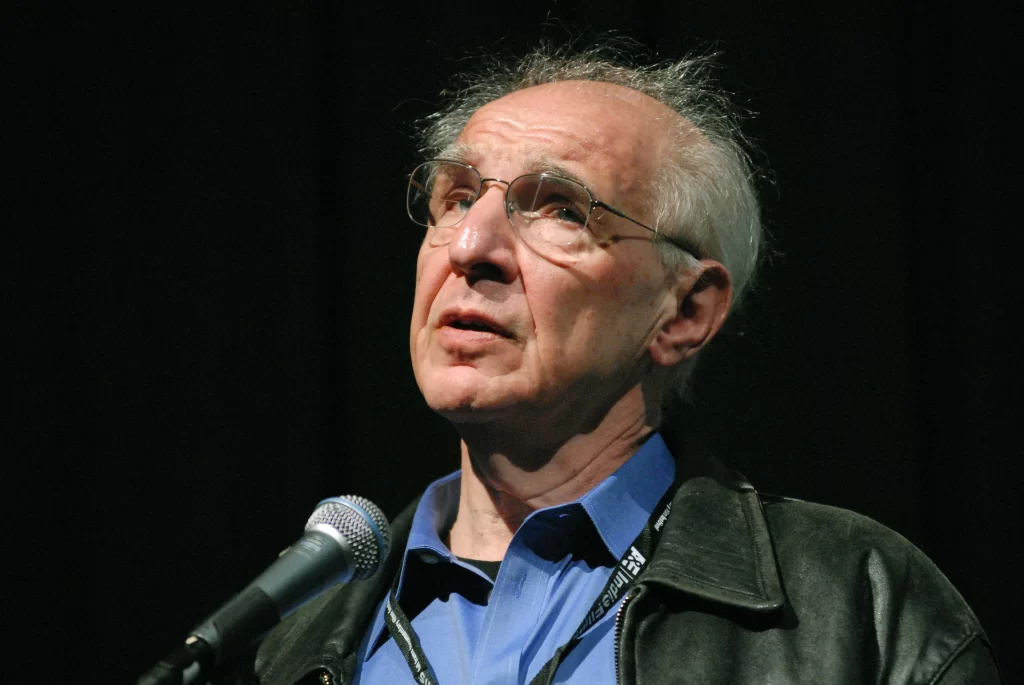
Alfred Guzzetti is a maker of documentary and experimental films and videos. His work has been shown at the New York Film Festival, the Margaret Mead Festival, and other festivals in London, Rotterdam, Germany, Spain and France, as well as in installation settings in New York, Copenhagen, and Santa Monica.
Guzzetti was born in Philadelphia and attended the public schools there. He earned a BA from Central High School and a second BA from Harvard College. He studied at Birkbeck College, University of London, as a Marshall Scholar, and received a Ph.D. in English Literature from Harvard University, where he is now Professor of Visual Arts.
Following a series of films for theatrical productions, Guzzetti’s experimental short, Air, won first prize in its category at the 1972 Chicago Film Festival and was followed by another experimental short, Evidence (1972). Guzzetti then embarked on an autobiographical cycle that included the feature-length Family Portrait Sittings (1975) and Scenes from Childhood (1980), both premiered at the Whitney Museum of American Art. These led to further autobiographical films, including Time Exposure (2011) and The Gifts of Time (2018), as well as to collaborations with the photographer Susan Meiselas and filmmaker Richard P. Rogers, with whom he co-directed Living at Risk: The Story of a Nicaraguan Family (1985) and Pictures from a Revolution (1991). These political and historical documentaries prompted further collaborations with Susan Meiselas on Reframing History (2006) and A Family in History (2011), a two-DVD set that includes Living at Risk plus a group of 20 short films entitled The Barrios Family 25 Years Later.
In the late 1980s Guzzetti began a series of conversations with anthropologist Ákos Östör that led to Seed and Earth (1994), a portrayal of life in a Bengali village, and Khalfan and Zanzibar (1999), which poses the question of an individual’s relation to his culture. Both were made collaboratively with Östör and anthropologist Lina Fruzzetti.
Around 1993 Guzzetti became interested in the experimental possibilities of the new small video formats and began a series of pieces that include Rosetta Stone (1993), What Actually Happened (1996), Under the Rain (1997), A Tropical Story (1998), The Tower of Industrial Life (2000), which was selected for the 2002 Whitney Biennial, Down from the Mountains (2002), Calcutta Intersection (2003), América Central (2004), History of the Sea (2004), Still Point (2009), Renewal (2015), The Falcon Cannot Hear the Falconer (2020), Passage (2023), Daybook (2022), and Against the Light (2023). This experimental strain is related to his work with composers, including his contributions to Earl Kim’s Exercises en Route (1971) as well as to Kurt Stallmann’s SONA (2005) and Moon Crossings (2011). He worked collaboratively with Ivan Tcherepnin on Sky Piece (1978), and with Stallmann on Breaking Earth (2008), a gallery installation for 11 channels of sound and 5 video projections, Time Present (2013), and Among Rivers (2019), for 4 performers, 28 loudspeakers, and 7 video projectors.
Guzzetti is the author of the book Two or Three Things I Know about Her: Analysis of a Film by Godard (1981).
